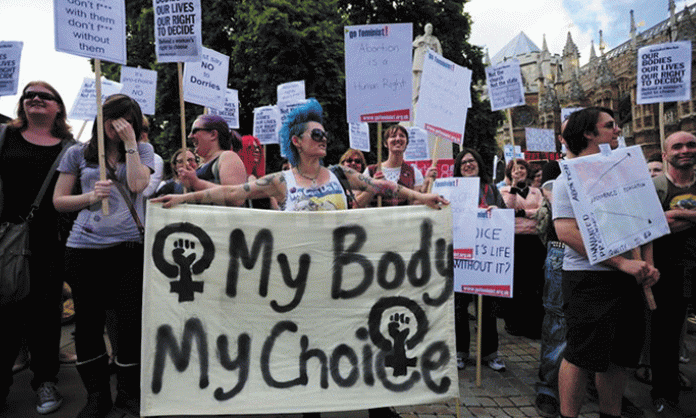There’s no question that the federal cabinet is infested with anti-choice bigots. Tony Abbott is well known for his anti-abortion views, infamously describing abortion as an “epidemic” and “unambiguous moral tragedy” when health minister in 2004.
The same year, current education minister Christopher Pyne proposed banning the procedure for women more than 21 weeks pregnant. He also backed calls to deny Medicare funding for abortions.
He found an ally in current agriculture minister Barnaby Joyce, who told a Right to Life conference in 2005 that his goal as a public figure was to ban “the unfortunate carnage of abortion”.
And let’s not forget that, until very recently, resident lunatic Corey Bernardi, who describes pro-choice advocates as “pro-death”, was a member of Abbott’s inner circle.
Concerning as this state of affairs may be, so far none of these primordial bog monsters have indicated that they have the mettle for a full frontal assault on the right to choose. Challenges to abortion rights have tended to come in more insidious garb, often dressed up as concern about women’s health and psychological well-being. This indicates that slow erosion, just as much as dramatic legislative change, is what pro-choice advocates should be on guard against.
Central to the slow erosion tactic is undermining the hard-won pro-choice majority position in Australian politics.
This was what was behind former Liberal prime minister John Howard’s move to encourage public debate on the issue. Although it resulted in no change to the accessibility or public funding for abortion, the victory of the Howard era was to bring into question the reproductive freedoms won over previous decades.
A key battleground was late term abortions. Anti-abortionists argued that terminations in the third trimester of pregnancy were morally wrong and should be banned (they are currently banned in WA and are allowable only in certain circumstances elsewhere).
This was an attempt to focus the reproductive rights discussion on the development of the foetus, rather than, as had been established by the pro-choice movement, the needs and desires of the woman involved.
The success in NSW last year of “Zoe’s law”, which establishes that a foetus has legal rights independently of its mother, reflects the success anti-choicers have had on this score.
Another important line of attack in the anti-choice backlash has been establishing that abortion is traumatic for women and a fraught moral question for all involved.
Even feminists such as Naomi Wolf have criticised the pro-choice movement for ignoring the negative effect abortion supposedly has on women. Compulsory counselling implies that women should be traumatised or at least feel morally conflicted by their decision.
Proposed Victorian laws that would establish the right of doctors to conscientiously object to abortion clearly aim to legitimise such anti-abortion sentiments.
Pro-choice advocates need to resist this push. To do this effectively, we need to reassert that women must be entitled to access freely all available medical technology relating to reproduction, without interference from the state or other authorities.
Women – at whatever stage of life, whatever stage of pregnancy, in whatever family or economic circumstances – have the right to determine how many or how few children they have, with the assistance of whatever medical technology is available and without charge.









